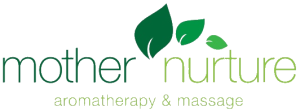The word “aromatherapist” implies a person who uses aromas in therapy. Yes, that’s true, however as I’m often saying “it’s more than just nice smells”.
As with most occupations it’s your qualifications and experience that give you the right to call yourself a professional. When we talk about professionalism, what are we really saying? According to Salvatore Battaglia “while there may be many definitions of ‘professional’ they all have the same basic message. A person who is focussed on and committed to a given profession, who is not seeking personal gain by jumping on the latest bandwagon”. *
A professional clinical aromatherapist will have gained their qualification though an accredited training organisation. A recognised course will usually include study in the following areas:
- Anatomy & physiology, chemistry, botany, nutrition, counselling and business skills.
- The in-depth study of essential oils plus other components used in aromatherapy such as base oils, raw materials, hydrosols and extracts. This includes their properties, uses and most importantly safety aspects.
- Practical skills including blending and application of aromatherapy treatments. This may or may not include other therapies such as massage therapies, reflexology, kinesiology and beauty therapy.
A practising aromatherapist will be a full member of a professional organisation such as IAAMA, the International Aromatherapy and Aromatic Medicine Association of Australia. Full membership requires:
- Certain level of qualification with an accredited education facility
- Ongoing professional development
- First aid certification
- Current insurance policy covering their specialty
What does an aromatherapist DO?
So, what does an aromatherapist actually DO in practice? This can vary widely, depending on the area they work in. An aromatherapist may work in the following fields:
- Private practice/own business:
offering consultations and aromatic remedies
using aromatherapy in conjunction with other therapies such as massage, TCM, kinesiology
selling essential oils and aromatherapy products to practitioners or the public
- Consulting with perfumers, skin care companies, other health practitioners on the safe and therapeutic use of aromatherapy in their product line or workplace.
- Teaching aromatherapy and other skills in an accredited training organisation
What to expect when you see an aromatherapist
When we talk about aromatherapy we often think of massage. However there are so many other ways essential oils can be used to enhance our health and wellbeing. There are some instances that may be conducive to consultation and prescription of aromatherapy treatments other than massage such as morning sickness, coughs and colds, skin disorders, emotional issues, menstrual problems, childhood illnesses and more.
Whether you’re having a treatment or looking for a personalised remedy, it will always entail a consultation to determine the most suitable treatment path and risk of any adverse reactions. An aromatherapy consultation takes into account your physical and psychological health and may include discussion on medical and surgical history, family history, diet, lifestyle, social factors, previous treatments, sleep and stress management.
This ensures essential oils and application methods can be prescribed specific to your needs. Depending on your issue, the therapist will often ask you to “sniff” some appropriate essential oils to help choose the most suitable blend. Many children (and adults!) love this part of the consultation.
Like all good professionals, an aromatherapist will know when it’s beneficial to refer a client on to another health practitioner. Often aromatherapists will work closely with other practitioners to get the best results. In the U.K. and parts of Europe, especially France, aromatherapy clinics and the incorporation of aromatherapy in hospital settings are much more customary.
Could aromatherapy benefit YOU?
I believe there is something for everyone in the aromatherapy world! A major benefit of essential oils and other aspects of aromatherapy is it’s truly holistic. One simple oil may be able to treat a physical ailment, whilst at the same time assist with emotional balance. I also love that it is:
- Easy to use
- Natural, plant-based medicine (although this doesn’t automatically mean it’s safe)
- Safe to use when correct guidelines are followed
- Empowers people to help themselves
- Complementary, so can be used in conjunction with other treatments
- Preventative, by supporting the body to heal and avert secondary infections
If you would like to experience the wonders of aromatherapy contact me or you can find a qualified aromatherapist in your area through the IAAMA website: www.iaama.org.au
* Battaglia, S. (1997). The Complete Guide to Aromatherapy. Queensland: The Perfect Potion.
